Hop
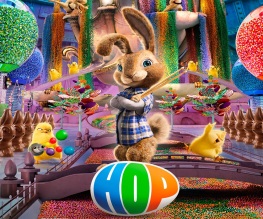
Hop‘s sweetly trite misadventure of self-discovery is – in a chocolate-covered nutshell – as vacuously simplistic as the title suggests. The celluloid equivalent of cotton-candy, this film aims to make a quick, big buck off of the familiar recipe of sugar-spun hot air and commercialised holiday icons, and it is utterly impossible to describe this concoction in any other manner but through derisive, confection-based metaphors and disdain for the corporatism that binds it all together.
[FLOWPLAYER=http://uk.image-1.filmtrailer.com/48392.jpg|http://uk.clip-1.filmtrailer.com/5716_19866_a_5.flv,275,180]
Voiced by the leporid-lipped Russell Brand, EB, the teenaged, prodigal offspring of the Easter Bunny and heir to the Easter factory throne, is caught between his duties to take over the family business, and his dreams of rock stardom. In a last-ditch effort to follow his little rabbit heart, EB runs away from home and heads for Hollywood in pursuit of becoming a drummer. It is here, in the proverbial land of milk and honeys, that EB meets up with kindred spirit Fred O’ Hare (Marsden), an out-of-work slacker who similiarly harbours aspirations for things greater than what is expected of him. But amidst blooming interspecies bromance, the perfunctory trouble looms, and back at Easter Island, Carlos (Hank Azaria), the factory foreman and a chick with a Napoleonic complex, hatches a plan for a coup d’état that could threaten the future of Easter itself.

Sadly, EB is just a mascot for Hershey’s/Cadbury’s/Lindt, and his soullessly-scripted story is the advertising campaign. Hop‘s plot masquerades moralism – the impending disaster in Easter Island presents both EB and Fred with the opportunity to conquer their respective eggs-istential crises – but the shoddily composed CG scenes are little more than an unending conveyor belt of conspicuous product placement and charmless one-liners. And the blending of state-of-the-art substandard animation with campy, lampoonish live-action, renders the kiddish ‘comedy’ barely able to coax a cavity-riddled titter from even the most sweet-toothed of movie-goers; Marsden’s performance achieves the seemingly impossible feat of blending insipid vapidity with clownish theatrics, Elizabeth Perkins appears to have quite literally gone blind – either that or someone forgot to direct her towards the somewhat integral location of the green screen – and the film’s only semblance of credibility ironically hangs by the fragile coattails of bad-boy Brand’s en vogue popularity.

That, in one speedy, subliminal, hippety-hop, is the long and short of it. Before it’s barely begun, the feature-length message of passive consumerism comes to a neatly abrupt and nonsensical end, so brazen in its obvious motives that it does nothing to address any superficial plot-holes or the gnawing conundrums of why no other character but Fred seems to be surprised by a talking rabbit, and how in the bloody hell can an Easter factory sustain any type of significant turnover outside of April.
Admittedly, Hop is no intellectual exercise. And even though it should be plugged as the candied, coming-of-age tale about following your dreams, having them destroyed, and realising that adult responsibility and resignation will inevitably triumph over any juvenile, fanciful aspirations of fulfilment, it’s unlikely that many will get that far into a multifarious analysis of Hop. Because you’re not meant to. The film is not much more than a shiny Easterland of (B)rand marketing and the transparently saccharine attempt at a storyline barely conceals the fact that Hop is really just a hyperextended advert for confectionery.
Simply put, Hop is ironically, definitively Easter: much like the basketed goodies this season will bring, the event is one brightly packaged, hollow creation whose consumption will inevitably make you nauseous.

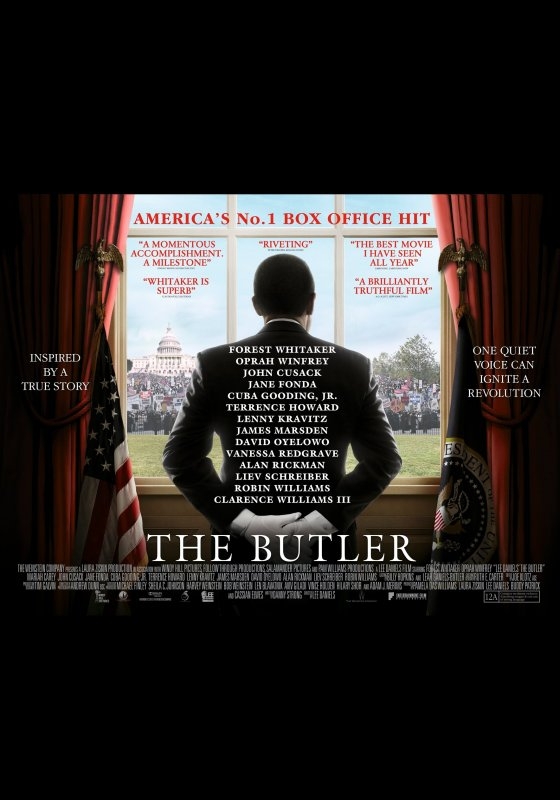
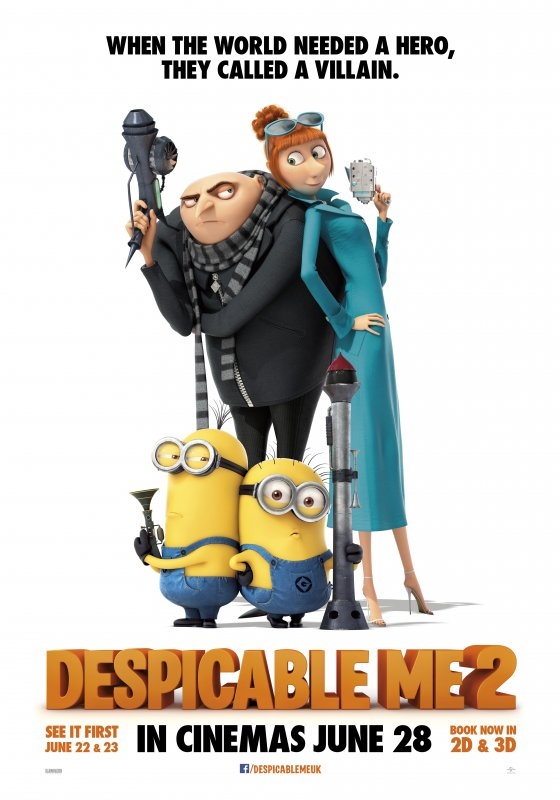
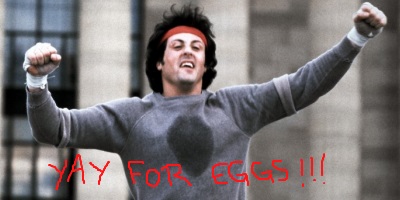
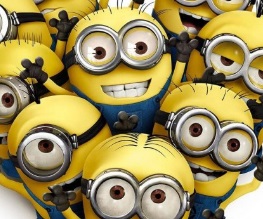
Recent Comments